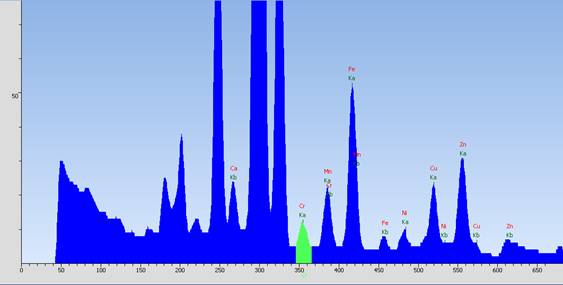The "chromium superstandard hollow capsule" was exposed by the media and caused social focus. Tianrui Instrument has long been devoted to the research of detection methods in the fields of environmental protection health and food safety, and at the first time, carried out extensive and in-depth research on "chromium poison capsule detection". At present, a solution has been formed.
Media exposure poison capsules attract attention
Over the past few days, CCTV's "Weekly Quality Report" revealed that 13 products of 9 domestic pharmaceutical companies used hollow capsules with excessive chromium, causing uproar in China. "Poison capsule" has become the focus of social attention.
According to reports, some medical capsule production plants use industrial gelatin as the raw material for medical capsules, and industrial gelatin is obtained from leather scraps. When leather is tanned in industrial processing, it often leads to chromium residue. This kind of tanned chrome-containing leather waste is commonly known as "blue alum leather". The chromium content of industrial gelatin processed with "blue alum skin" often exceeds the standard.
Chromium is a toxic heavy metal and is divided into trivalent chromium and hexavalent chromium according to different valence states. Such as long-term ingestion of trivalent chromium, it is easy to get diabetes, hypertension and other diseases, and easy to cause tumors. Hexavalent chromium has a stronger toxin, which can damage the skin and respiratory and digestive systems, leading to dermatitis, pharyngitis, tracheitis, gastrointestinal diseases, etc. In severe cases, it can cause kidney failure and even cancer.
The "chromium poison" capsules eventually flowed into pharmaceutical companies and were made into norfloxacin, amoxicillin and other commonly used drugs and sold to patients. The harm is self-evident.
Pharmaceutical capsules must detect heavy metals
It is reported that the 2010 edition of "Chinese Pharmacopoeia" clearly stipulates that gelatin hollow capsules: the raw material gelatin used in the production of pharmaceutical capsules should at least meet the standard of edible gelatin, and the content of heavy metals such as chromium, lead, arsenic, manganese, and cadmium must be tested before leaving the factory.
According to the industry standard QB / T 4087-2010 "Edible Gelatin", edible gelatin should use animal skins, bones, etc. as raw materials, and it is strictly forbidden to use any industrial waste after tanning. The national standard GB6783-94 "Food Additives-Gelatin" also clearly stipulates the content of edible gelatin: edible gelatin is divided into three categories, A, B, and C. A is an international advanced level, and the limit for chromium is A 1mg / kg; Class B is the international average level, and Class C is the qualified product. The limit for chromium is 2mg / kg.
Among the 13 medium chromium superstandard hollow capsule products exposed this time, the chromium content is up to 181.54mg / kg, which is more than 90 times the national standard limit.
Analytical instruments make poison capsules nowhere to escape
In response to the current "chromium poison capsule" incident, Tianrui Instrument responded quickly and hoped to provide timely and effective solutions for major drug regulatory authorities and pharmaceutical companies.
Tianrui Instrument Application R & D Center has long been devoted to the research of detection methods in the field of environmental health and food safety. At the first exposure of the "poison capsule" incident, three capsule samples on the market were selected for testing and a complete solution was formed.
"EDX 1800B X-Ray Fluorescence Spectrometer" can achieve rapid detection of chromium content in pharmaceutical capsules. The elemental analysis range is from sulfur (S) to uranium (U), and the detection limit of analysis can reach 1ppm, which has the advantages of non-destructive, fast, and easy to operate.

EDX 1800B X-ray fluorescence spectrometer to test a sample capsule spectrum
"ICP2000 single-channel scanning atomic emission spectrometer" and "AAS6000 flame atomic absorption spectrophotometer" can achieve accurate analysis of trace chromium in pharmaceutical capsules. Its high sensitivity, low detection limit and other characteristics can be fully applied to the accurate analysis of chromium in gelatin.
ICP 2000 single-channel scanning atomic emission spectrometer for detecting a sample capsule spectrum
For more content, please pay attention to follow-up reports; for detailed solutions, please call Tianrui customer service hotline.
>>>>> Tianrui Instruments >>>>>>
Jiangsu Tianrui Instrument Co., Ltd. is a high-tech enterprise with independent intellectual property rights, with a registered capital of 11.84 million. It has two wholly-owned subsidiaries of Beijing Bangxin Weiye Company and Shenzhen Tianrui Instrument Company. The headquarter is located in the scenic Yangcheng Lake, Kunshan City, Jiangsu Province. The company specializes in the research and development, production and sales of analytical and testing instruments and software such as spectroscopy, chromatography, mass spectrometry, and medical instruments.
A whiteboard usually with white surface for nonpermanent markings, used in many offices, meeting rooms, school classrooms, and other work environments.
Plastic White Board, Childrens White Board, Small White Board
Ningbo Hollan Stationery Co.,Ltd. , https://www.hollanstationery.com